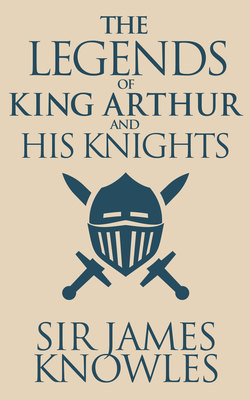Читать книгу Legends of King Arthur and His Knights, The - Sir James Knowles - Страница 4
На сайте Литреса книга снята с продажи.
ОглавлениеPREFACE TO THE EIGHTH EDITION
he Publishers have asked me to authorise a new edition, in my own name, of this little book—now long out of print—which was written by me thirty-five years ago under the initials J.T.K.
In acceding to their request I wish to say that the book as now published is merely a word-for-word reprint of my early effort to help to popularise the Arthur legends.
It is little else than an abridgment of Sir Thomas Malory’s version of them as printed by Caxton—with a few additions from Geoffrey of Monmouth and other sources—and an endeavour to arrange the many tales into a more or less consecutive story.
The chief pleasure which came to me from it was, and is, that it began for me a long and intimate acquaintance with Lord Tennyson, to whom, by his permission, I Dedicated it before I was personally known to him.
JAMES KNOWLES.
Addendum by Lady Knowles
In response to a widely expressed wish for a fresh edition of this little book—now for some years out of print—a new and ninth edition has been prepared.
In his preface my husband says that the intimacy with Lord Tennyson to which it led was the chief pleasure the book brought him. I have been asked to furnish a few more particulars on this point that may be generally interesting, and feel that I cannot do better than give some extracts from a letter written by himself to a friend in July 1896.
“DEAR ——,
“I am so very glad you approve of my little effort to popularise the Arthur Legends. Tennyson had written his first four ‘Idylls of the King’ before my book appeared, which was in 1861. Indeed, it was in consequence of the first four Idylls that I sought and obtained, while yet a stranger to him, leave to dedicate my venture to him. He was extremely kind about it—declared ‘it ought to go through forty editions’—and when I came to know him personally talked very frequently about it and Arthur with me, and made constant use of it when he at length yielded to my perpetual urgency and took up again his forsaken project of treating the whole subject of King Arthur.
“He discussed and rediscussed at any amount of length the way in which this could now be done—and the Symbolism, which had from his earliest time haunted him as the inner meaning to be given to it, brought him back to the Poem in its changed shape of separate pictures.
“He used often to say that it was entirely my doing that he revived his old plan, and added, ‘I know more about Arthur than any other man in England, and I think you know next most.’ It would amuse you to see in what intimate detail he used to consult with me—and often with my little book in front of us—over the various tales, and when I wrote an article (in the shape of a long letter) in the Spectator of January 1870 he asked to reprint it, and published it with the collected Idylls.
“For years, while his boys were at school and college, I acted as his confidential friend in business and many other matters, and I suppose he told me more about himself and his life than any other man now living knows.”
ISABEL KNOWLES.
